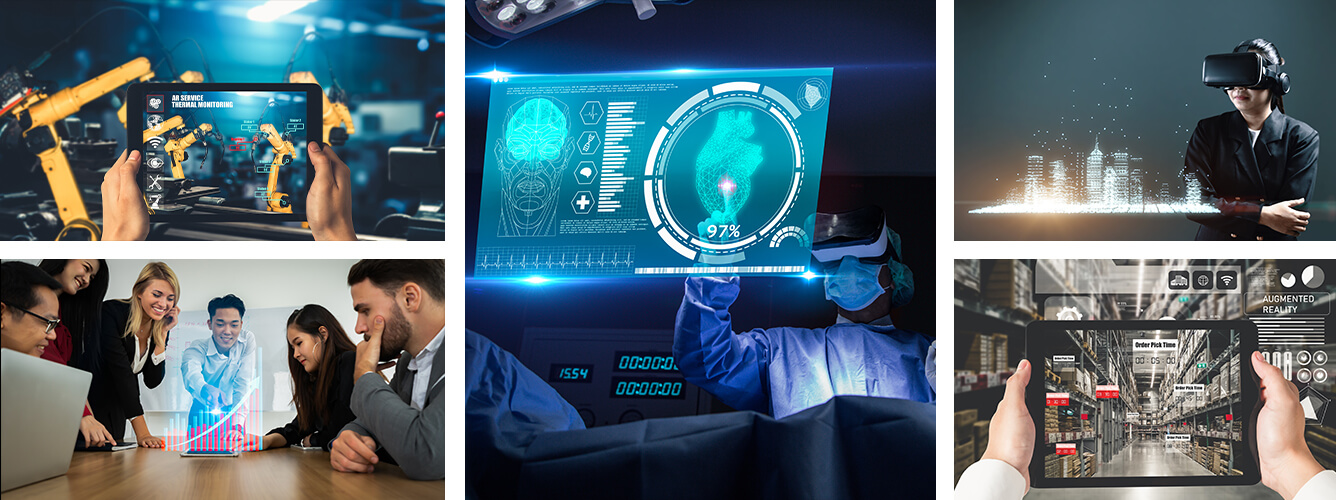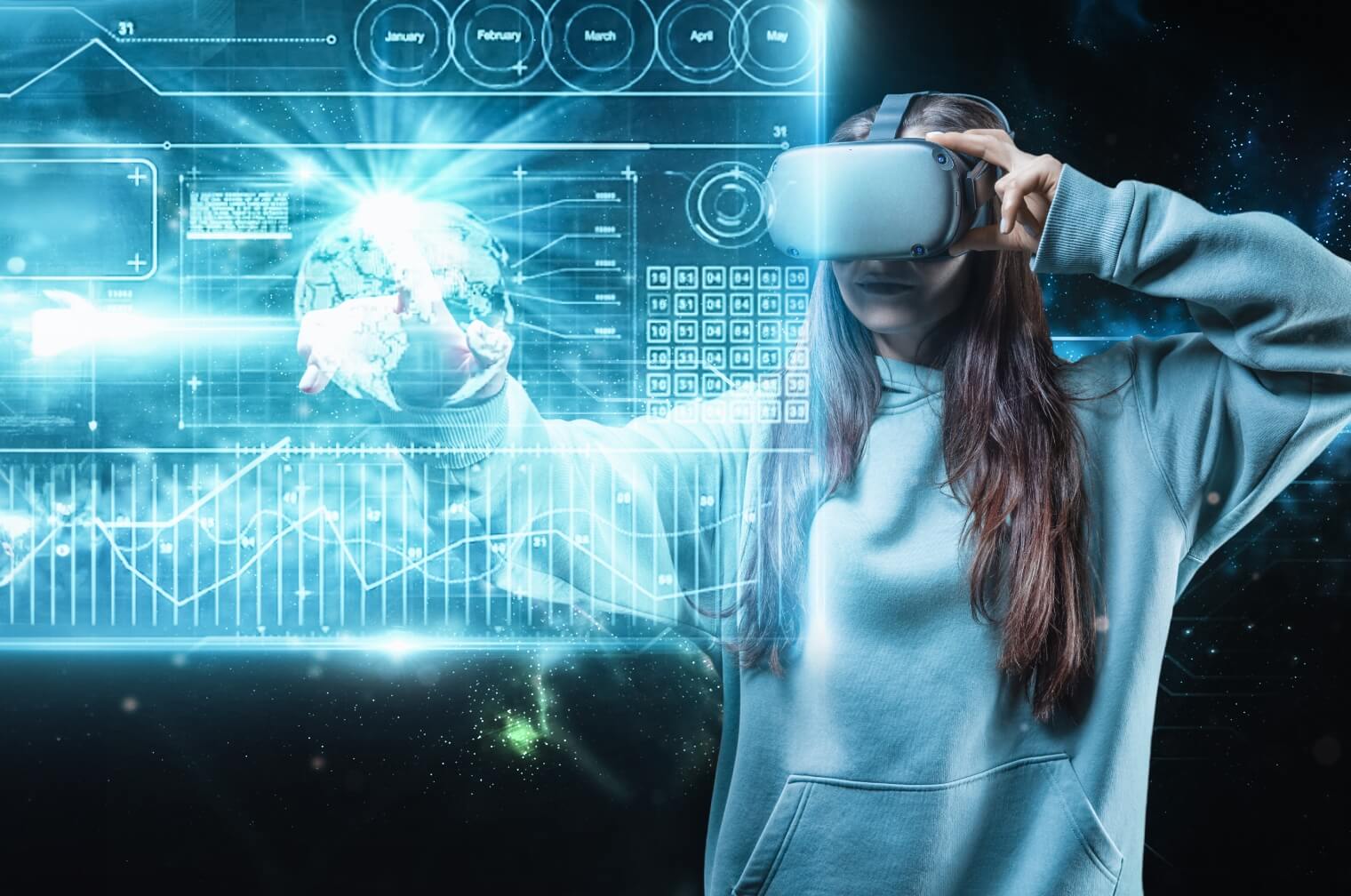Immersive technologies such as AR (Augmented Reality) and VR (Virtual Reality) are currently overtaking the whole world with rock speed. Immersive technologies have reached the top point with huge acceptance by enterprises worldwide.
Businesses across the world are moving their focus from niche and pilots offerings to standardized and modern strategies packed in prototypes mainly intended for industrialization.
Over the five years, game developers, advertising agencies, construction companies, the automobile sector has shown a huge interest in immersive technologies. Such tech upgrades seem new; however, experimentation with such technologies has been taking place since the 1960s.
Some predictions and market analysis by experts show that in the next decade, add-ons in digital reality- a mix of virtual reality, 360°, augmented reality, mixed reality and other immersive technologies will lead to more intuitive, interactive and natural ways to make our lives better.
Literally, our ways of interacting with digital devices and information will alike no longer be hardware devices and screens; however, emotions, gazes and gestures.
AR has rapidly emerged just from an experiment to a staple in media, education, automobile, games, and entertainment, and 67% of businesses are adopting it into their business operations.
Know how immersive technology is changing the world?
- Immersive tech covering the gaming arena In the last five years, we have seen a big comeback of immersive technology, playing a major role across different industries, mainly the gaming industry. Screen technologies, processing and graphics have enhanced rapidly over the last decade, and these improvements have offered new ways to develop immersive and enthralling experiences. When it comes to gaming, such tech advances have offered a new and creative medium to game developers. According to Statista, “VR gaming revenue is estimated to reach $19.5 billion by 2025; therefore,
game lovers will continue to see new VR-powered and advanced gaming experience. Immerse tech is enabling game developers and other innovators in creating more powerful and interactive apps for the users. Some studies show that this immersive environment may increase pain thresholds and enhance memory recall. - Giving immense boost in the retail industry There is a huge potential in the retail business if they look ahead to opting for advanced technologies such as AR, VR, mixed reality etc. The demand will increase more in the coming time because using technologies in processes assist in increasing and growing business profits. Implementing immersive technologies in retail assist not only retailers but also consumers in getting better customer experience along with reduced buying cost. For retailers and other investors, emerging technologies vastly improve customers’ involvement, experience and engagement. To get a perfect tech solution in your retail business, hire the best immersive technology company. VR like technology is offering new heights to customer engagement by providing virtual tours to the store. Lots of retail industries are integrating technologies in their business operations. Indeed it is the very quick acceptance and implementation of the technology in the retail industry.
- Re-framing the entertainment industry In the future, VR is predicted to change the entertainment industry – bringing games and videos to life and provide you with a different interactive experience while watching them. 66% of consumers are interested in Virtual Reality for audio, video and TV shows. The potential of VR has grown in the entertainment industry in very less time. Indeed it will revolutionalise the way we book hotel rooms, select holiday destinations, and buy automobiles.
- Transforming workplaces and enhancing teamwork Immersive technologies can help you lower downtime and make the workplaces safer. AR is known for its huge potential to offer easy access to technical manuals and information via simple visual interfaces. VR also has huge potential to empower workplaces and helps remote teams to collaborate easily to work on interrelated projects.
- Marketing and communications The best immersive technology company know-how emerging technologies can impact marketing and communication in your organization. Such techs offer powerful tools to communicate with clients and teams, additionally helps in market services and products to potential clients. AR and VR technology can attract a new audience and take required actions that are effective for marketing the products. For example, location-based Virtual Reality can assist in developing profitable and dedicated marketing plans to strengthen engagement and send positive brand messaging.
- Impact of AR/VR on businesses AR and VR both empower businesses in different ways. AR supports businesses with real-time decision making via visualization of content and virtual prototyping. AR will easily transform the business structure and processes in no time, the most vital transformation for business innovations being AR development for wearables and smart devices. Businesses hire the best immersive technology company to enhance their business operations and provide the best-in-class customer experience. When it comes to VR, it affects businesses internally and externally. The estimated market of virtual reality in the healthcare industry is $7 billion by 2026; we will see more changes and an increase in the adoption of VR technology. With the immersive technology VR now businesses can receive non-pixelated faces and clearer interactions during video chat sessions and online meetings.

Tech developers and innovators are rapidly working in enhancing the capabilities of immersive technologies. Indeed AR, VR and MR will bring more transformation in business operations. Undoubtedly, immersive techs are revolutionizing and helping the business in different ways.
For an immersive future, businesses can rely on immersive technologies. Immersive technologies are profitable assets to streamlining business operations, identifying customers, analyzing market and competitors, interacting with the customers and nurturing employees.

Mit Shah
Mit Shah has been creating immersive experiences and delivering games for various platforms for over 9 years.
